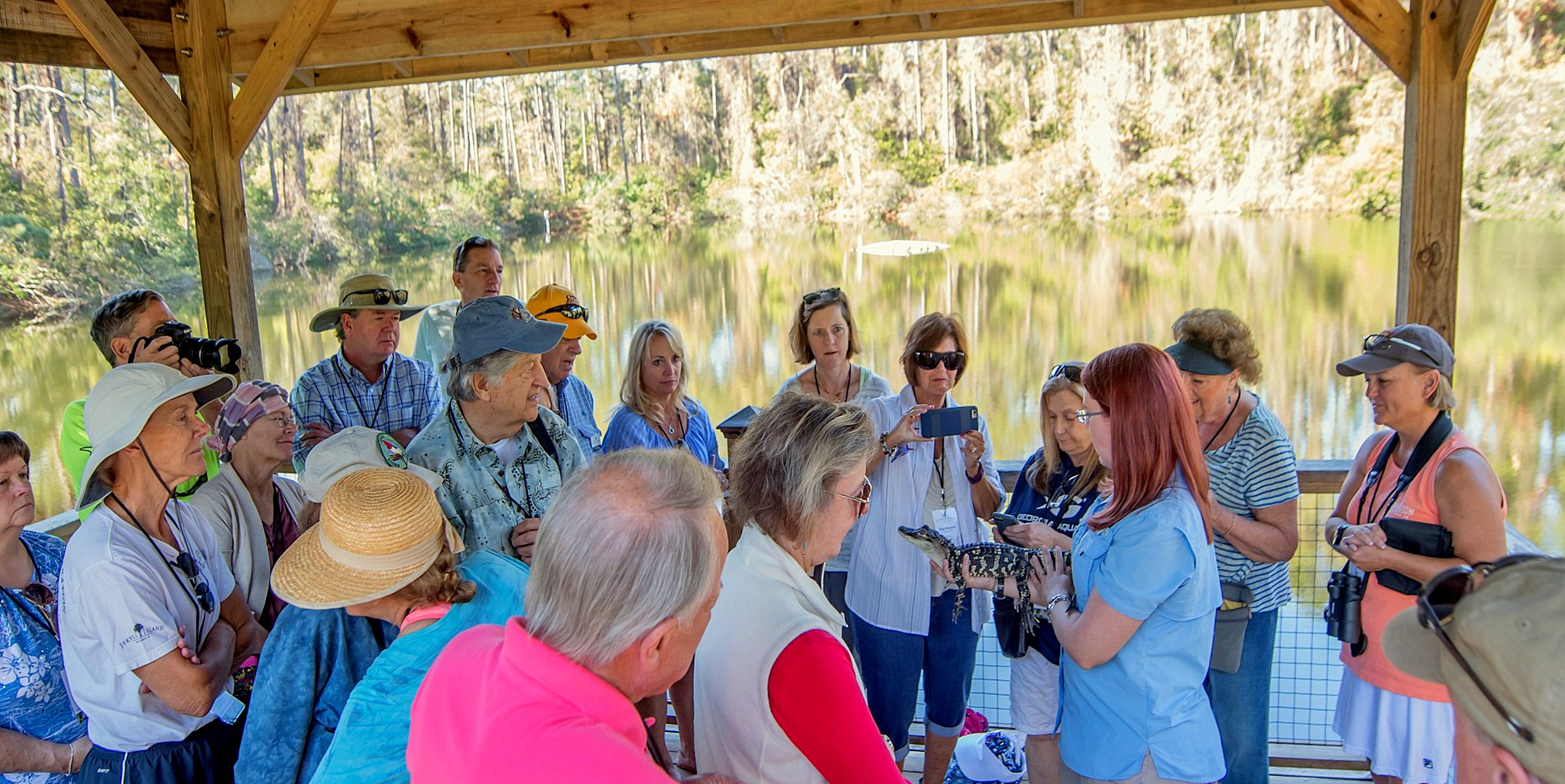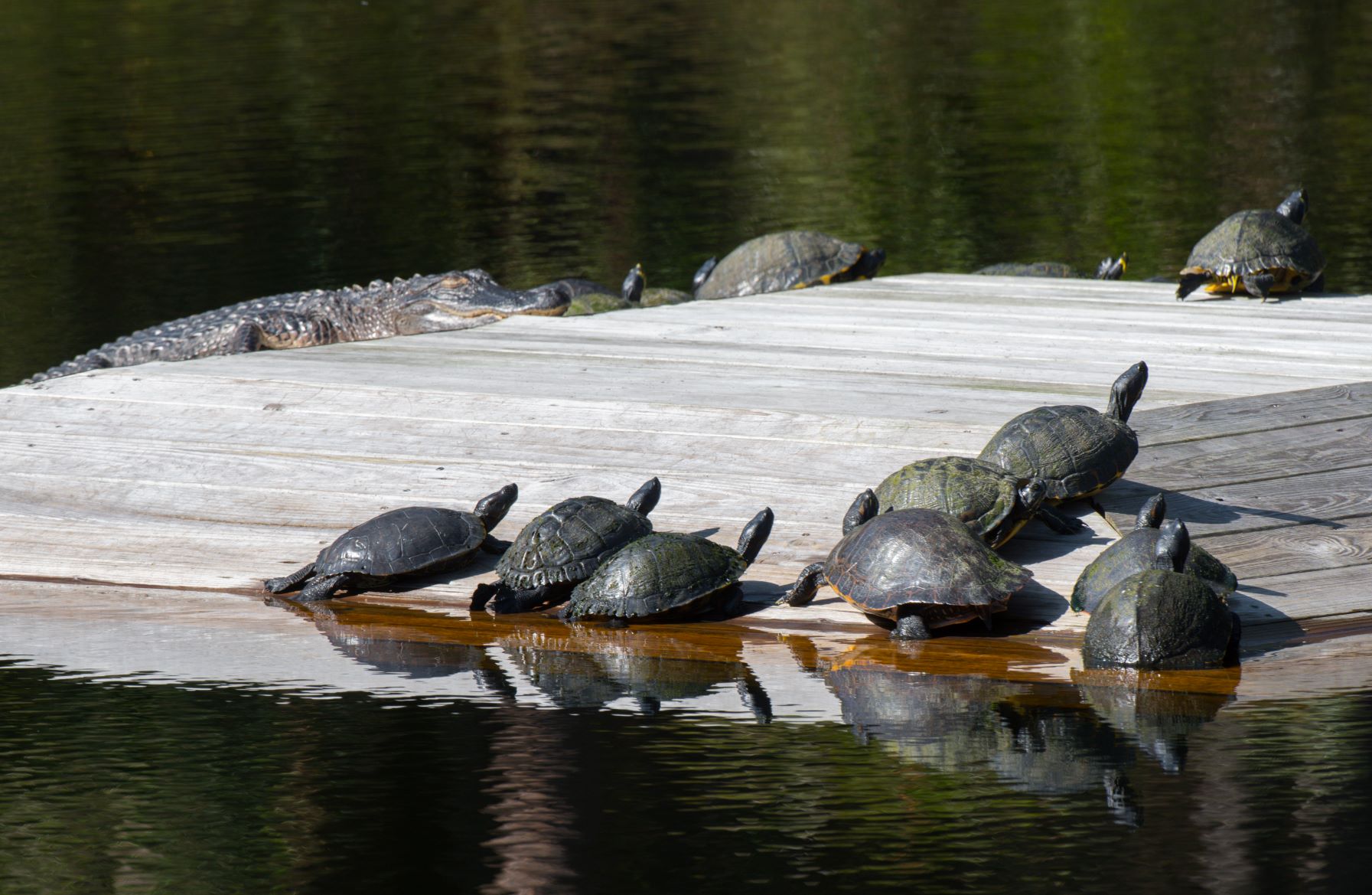Native Georgian Hollis Linginfelter learned about Jekyll Island’s allure long before she was asked to help protect it.
“I’d visited the island a few times…as a child and young adult…before agreeing to serve on the (Jekyll Island Foundation) Board,” she said, “and then, of course, I learned about the great work the JIA and the JIF have done to improve and protect the island from Hank (Linginfelter) when he served on and then chaired the Foundation board .
Assessing the Island through an analytic mind, which serves her well as a Managing Director with Truist Securities, Hollis appreciates the JIA’s measured approach to amenities, which offer a variety of enjoyment options for as many people as possible without stressing the natural habitat.
“I love that Jekyll is a State Park with a defined protection plan, and I think the JIA has done a great job of balancing what people want to experience with what the Island needs to survive,” she said.
She noted the public/private partnerships that have shaped present day Jekyll are unique. “A lot of state parks don’t have the amenities—or the history—that Jekyll Island does. Development has been well thought out and carefully planned so that the island is self-supporting with the resources to promote conservation and preservation.
The history, she said, is one reason she has come to appreciate Jekyll. But what is most near and dear to her heart? Conservation. “Stewardship of the environment is so important to me. So, while I enjoy roaming the historic district imagining what it must have been like in the club’s heyday, my favorite activity is kayaking on the inland waterway. I want to see if we can find more ways to protect the environment while also ensuring access, particularly to those who have not had the opportunity to know the beauty of the Georgia coast.”
As Hollis looks ahead to her time as chair of the Foundation Board, a critical Island project is on the horizon that will help her do just that.
The Georgia Sea Turtle Center (GSTC), founded in 2007, has been identified by the JIA as an amenity in need of expansion. A world-renowned facility primarily focused on the rescue and rehabilitation of sea turtles, the GSTC is housed in the former Power Plant building of the Jekyll Island Club. It is a contributing structure in the Jekyll Island Historic District and is listed on the National Register of Historic Places. For over 15 years, the Center has cared for sick and injured turtles (and other animals) while educating Island visitors about cutting edge veterinary procedures and the effects of human contact with wildlife through daily programs, field trips, guided tours and beach walks.
“The Foundation exists to support the JIA, to raise money for (conservation, preservation and education) projects the Authority can’t do on its own,” said Hollis. “This effort to expand and enhance the Turtle Center—as with Mosaic, Jekyll Island Museum—will provide a new opportunity to tell Georgians and the world about Jekyll’s impact.”
Hollis hopes the sharing of Jekyll’s story from a different perspective than the Historic District or the Mosaic will make people curious. “People who visit the Island are much more likely to be engaged in protecting it.”
But she acknowledges that engagement needs to be intentional. “The JIA is thinking very hard about how many visitors are optimal during different times of the year for different amenities and activities. It has to be spread out; it has to be a healthy balance.”
She’s excited about the strength of—and strategic direction set by—the Foundation Board and about the mutually beneficial partnerships the Foundation has curated on and off the Island. “We’ve got a great group of people leading the charge who truly want the best for every aspect of Jekyll.”

